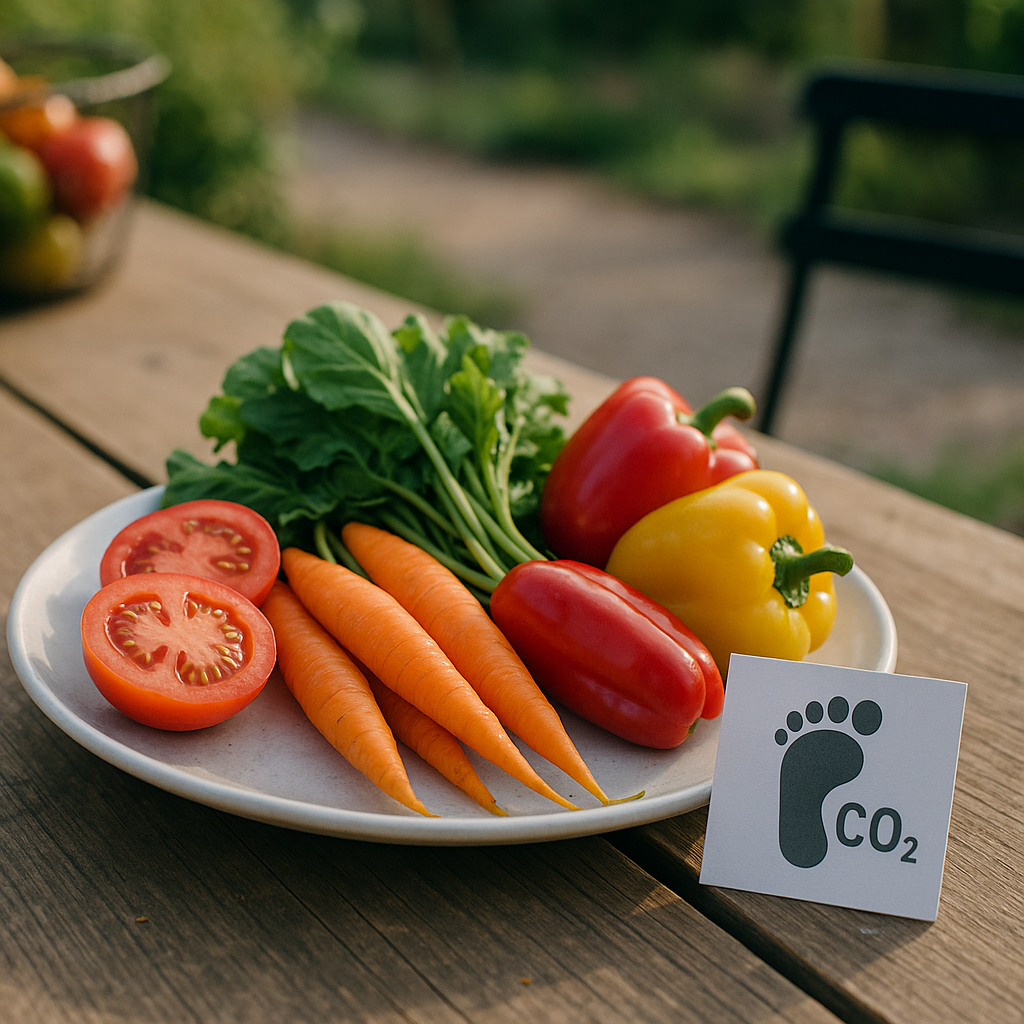5901 Botham Jean Blvd, Dallas, TX 75215
Basics of Sustainable Living and Recycling Tips
May 20, 2025Our planet faces increasing environmental challenges due to excessive waste and resource depletion. Sustainable living and recycling offer practical solutions that anyone can implement today. These practices help reduce landfill waste while conserving valuable natural resources for future generations.
The foundation of sustainable living begins with the 5 R’s: Refuse what you don’t need, reduce consumption of essentials, reuse items, recycle materials properly, and rot organic waste through composting. This framework provides clear steps for making environmentally conscious decisions daily. Starting small with reusable water bottles, shopping bags, and food containers can significantly decrease single-use plastic waste.
Beyond individual actions, effective recycling requires understanding your local recycling guidelines. Learning which materials are accepted in your area ensures proper waste sorting. Composting food scraps further reduces household waste while creating nutrient-rich soil for gardens. These simple practices connect our daily choices to meaningful environmental impact.
How Can We Reduce Waste in Our Daily Lives?

Reducing waste is not just an environmental choice; it’s a practical approach that benefits both our planet and our finances. The choices we make daily can significantly reduce the waste ending up in landfills.
Embrace Reusable Alternatives
Single-use items are major contributors to waste. Replace disposable products with durable alternatives that serve the same purpose without the waste. Invest in quality reusable shopping bags, water bottles, and food containers.
When shopping, bring your own cloth bags for produce and bulk items. This simple habit eliminates dozens of plastic bags each month. Keep a set of reusable utensils and a water bottle in your car or bag to avoid disposable options when you’re away from home.
Beyond the basics, consider reusable alternatives for household items. Swap paper towels for washable cloth ones and replace disposable makeup wipes with reusable cotton rounds. Each substitution reduces waste and saves money over time.
Shop Mindfully
Our purchasing decisions directly impact waste generation. Choose products with minimal packaging whenever possible. Buy in bulk for items you use regularly to reduce packaging waste.
Before making purchases, ask yourself if you truly need the item. Repair broken items instead of replacing them. This approach not only reduces waste but often results in significant cost savings.
Consider the end-of-life impact of products before buying. Select items that can be recycled, composted, or repurposed when they’re no longer useful. Often, the most sustainable product is the one you don’t buy.
Plan Meals to Minimize Food Waste
Food waste is a massive problem worldwide, with nearly 40% of all food in America being wasted. Meal planning is one of the most effective strategies to combat this issue.
Begin by taking inventory of what you already have in your pantry and refrigerator. Plan your meals around ingredients that need to be used first, ensuring food gets consumed before it spoils.
Create a detailed shopping list based on your meal plan and stick to it. This prevents impulse purchases that often lead to waste. Store food properly to extend its shelf life and use the “first in, first out” method, using older items before newer ones.
Embrace Composting
Even with careful planning, some food scraps are inevitable. Instead of sending these to landfills, start composting. Fruit peels, vegetable trimmings, coffee grounds, and eggshells can all be transformed into nutrient-rich compost.
Composting reduces methane emissions from landfills and creates valuable fertilizer for gardens. Many cities now offer municipal composting programs. If yours doesn’t, consider setting up a simple backyard composting system or a compact indoor option.
Adopt the “Less is More” Mindset
Reducing waste ultimately requires a shift in perspective. Focus on experiences rather than possessions. Borrow items you’ll only use occasionally instead of buying them. Share resources with neighbors and friends.
Remember that small changes add up. You don’t need to transform your lifestyle overnight. Start with a few manageable changes and build from there. Each step toward waste reduction makes a difference.
What are Eco-Friendly Home Solutions?
Making your home energy-efficient is central to sustainable living. The choices we make in our homes directly impact both the environment and our utility bills. Implementing eco-friendly solutions creates a more sustainable living space that benefits both your wallet and the planet.
Lighting is one of the simplest yet most impactful changes you can make. LED bulbs use 80-90% less energy than traditional incandescent bulbs while lasting significantly longer. A typical LED bulb can function for up to 25,000 hours, compared to just 1,000 hours for conventional options, dramatically reducing replacement frequency and associated waste.
Energy-efficient appliances offer substantial long-term savings. When shopping for new refrigerators, washing machines, or dishwashers, look for models with high Energy Star ratings. These appliances integrate water-saving functionalities and optimized power consumption. Modern Energy Star dishwashers, for example, use less than half the energy and water of models manufactured two decades ago.
Renewable energy adoption transforms how homes receive power. Solar panels convert sunlight into electricity, reducing dependency on traditional power grids while cutting electricity costs over time. The technology has become increasingly affordable, with many regions offering incentives and rebates for installation, making the investment more accessible to average homeowners.
Water conservation is another critical aspect of eco-friendly home solutions. Installing low-flow faucets and showerheads significantly reduces water consumption without compromising functionality or comfort. These fixtures maintain adequate water pressure while minimizing usage, supporting responsible resource management.
Regular maintenance plays a crucial role in water conservation. Addressing leaks promptly prevents substantial water wastage and potential property damage. Even small, seemingly insignificant leaks can waste over 3,000 gallons annually. Regular inspection of pipes and fixtures helps identify problems before they escalate into major issues.
For outdoor spaces, water-efficient landscaping dramatically reduces consumption. Native plants require minimal watering once established, while features like rain gardens and permeable paving help capture and retain water on-site. Mulching garden beds with materials like wood chips or straw effectively retains soil moisture, reducing watering frequency.
Smart home technology enhances eco-friendly practices through automation and real-time monitoring. Systems that control lighting, heating, and cooling based on occupancy patterns eliminate wasteful energy usage. Smart water sensors can detect leaks instantly, preventing water damage and conserving thousands of gallons annually.
The long-term financial benefits of eco-friendly home solutions extend beyond utility savings. These upgrades often increase property value and appeal to environmentally conscious buyers. More importantly, they contribute to resource conservation efforts essential for future generations.
How Does Our Diet Impact Sustainability?

Our food choices significantly impact the environment, with animal agriculture being a major contributor to greenhouse gas emissions. Research shows that incorporating more plant-based meals into your diet can substantially lower your carbon footprint. Meat products, especially beef, generate considerably higher emissions per serving than plant alternatives like beans and tofu.
Reducing meat consumption doesn’t require radical change. Even replacing animal products a few days each week makes a meaningful difference. This shift not only reduces methane production from livestock but also decreases the energy-intensive processes required for raising animals. Scientific evidence supports that the more plant-based your diet becomes, the greater the environmental benefits.
Choosing locally grown, organic produce amplifies these positive impacts. Food transported across long distances creates significant carbon emissions. Shopping at farmers’ markets connects you directly with local growers while cutting down on food transport emissions. These markets offer fresh, seasonal options that typically require fewer preservatives and less packaging.
Joining Community Supported Agriculture (CSA) programs provides another effective way to support sustainable food systems. These programs create direct relationships between consumers and local farms, reducing the carbon footprint associated with traditional food distribution. CSA participation also strengthens local economies and encourages more environmentally friendly farming practices.
Plant-based diets contribute to resource conservation beyond carbon emissions. Animal agriculture demands enormous amounts of water, land, and grain resources. By choosing more plant-based meals, you help reduce pressure on these limited resources. Simple swaps like replacing beef with bean burritos or choosing plant-based milk alternatives can significantly decrease your environmental impact.
The health benefits of sustainable eating align perfectly with environmental goals. Diets rich in fruits, vegetables, whole grains, and legumes are associated with lower rates of chronic diseases. Plant-forward eating patterns typically provide more fiber, antioxidants, and phytonutrients while containing less saturated fat than diets heavy in animal products.
How Can We Practice Sustainable Shopping?

Conscious consumerism is essential for sustainable living. Thoughtful purchasing decisions help reduce waste and minimize environmental impact. Quality consistently outweighs quantity; investing in durable items keeps products out of landfills and lessens the demand for new resources.
Before buying, research brands to verify their sustainability claims. Some companies engage in greenwashing—marketing products as eco-friendly without genuine practices. Look for third-party certifications like Fair Trade, GOTS (Global Organic Textile Standard), or B Corp status to confirm a company’s commitment to ethical standards.
Secondhand shopping is a powerful way to practice sustainable consumerism. Thrift stores, consignment shops, and online platforms like eBay or Poshmark offer unique, high-quality items at lower prices. Each secondhand purchase extends a product’s lifecycle and decreases the environmental impact of manufacturing new goods.
Supporting local businesses offers multiple sustainability benefits. Buying local products reduces carbon emissions from long-distance transportation and strengthens community economies. Farmers’ markets exemplify sustainable local shopping, providing fresh seasonal products with minimal packaging.
Creating shopping lists before going to stores helps prevent impulse buying. Plan purchases based on actual needs rather than temporary desires. A cooling-off period—waiting 24 hours before buying non-essential items—can help determine if you truly need something or simply want it temporarily.
Repairing and repurposing items extends their usefulness and reduces waste. Simple fixes can significantly prolong the life of your belongings. When repair isn’t possible, consider creative ways to repurpose items into something new and functional.
Buying products made from sustainable, organic, or recycled materials further reduces environmental impact. Materials like bamboo and hemp grow quickly with fewer resources. Recycled content keeps valuable materials in use and diverts waste from landfills.
Offset the carbon emissions from your purchases by supporting environmental projects. Many organizations offer carbon offset programs that fund renewable energy, reforestation, and other eco-friendly initiatives, helping balance the environmental effects of your shopping habits.
Conclusion: Embracing a Sustainable Lifestyle
Adopting sustainable living practices is not only beneficial for the planet—it is crucial for its survival. The small, everyday choices we make can collectively lead to significant environmental protection. By reducing waste, conserving energy, making conscious food choices, and embracing eco-friendly transportation options, we each contribute to a healthier ecosystem. These seemingly minor adjustments to our daily routines ultimately help combat climate change, preserve natural resources, and create cleaner air and water for future generations.
Ready to enhance your community’s recycling efforts? Contact Okon Recycling at 214-717-4083 for professional guidance on implementing effective recycling solutions. Our team can assist you in developing sustainable waste management practices that align with your environmental goals while meeting your specific needs.
